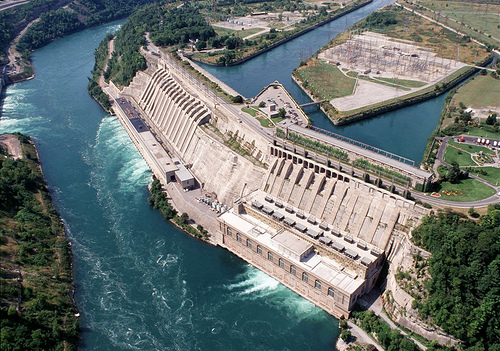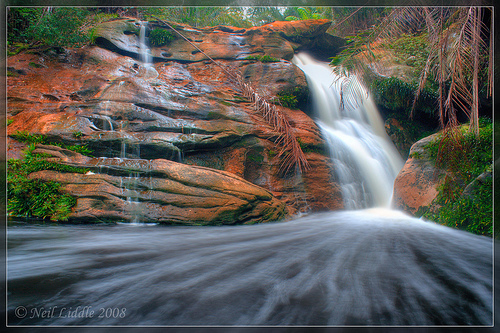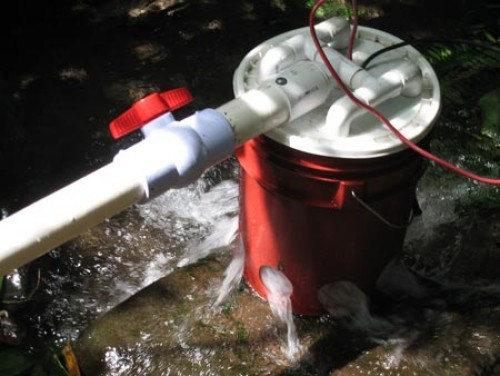
Image by Ontario Power Generation
When it comes to large-scale alternative power, hydroelectric plants are currently the most common – supplying more than 80% of the word’s renewable energy. While hydro power is much cleaner and more cost-efficient than the generation of electricity using fossil fuels, there are a number of disadvantages including the threat of dam failures, disturbance to the natural environment, and some greenhouse gas emissions.
Small hydroelectric power systems, however, create fewer threats and can be an excellent alternative energy source for residential use. Could small-scale hydro power be a viable option for your home?
Small hydroelectric projects are growing in popularity in the commercial energy sector, especially in China. These plants generally range in capacity, generating up to 10 MW of power – enough to supply a small community. Small-scale hydro power can also be a cost-efficient alternative for residential, off-grid living under the right conditions.
Requirements for Hydroelectric Power

Image by NeilsPhotography
To generate power with water, you’ll of course need an adequate supply of water – a flow of at least 2 gallons per minute with a substantial drop to create pressure. A drop of just 2 feet would require a flow of 500 gallons per minute. Mother Earth News offers some useful advice on site assessment for your homestead hydropower project.
You’ll also need the necessary hardware to harness the power generated by the flowing water and then convert the energy into a usable current for your home. A hydro power generator is the heart of the system and can be purchased through a variety of suppliers. You’ll also need a battery pack and inverter, as well as a sufficient amount of piping. A complete hydroelectric power system will cost as little as $1000 up to as much as $10,000, depending on your needs.
DIY Hydro Power
If you’re mechanically inclined with a good supply of flowing water nearby, consider trying your hand at a homemade hydroelectric power system. Build it Solar has a tremendous amount of resources to help with your hydro power planning and installation as well.

For those who prefer to start with a really small-scale hydro system, check out Sam Redfield’s bucket hydro generator – the perfect alternative energy gadget charger – or this faucet powered hydro turbine made of recycled CDs and auto parts. If a rustic waterwheel is more your style, take a look at the DIY home energy projects we mentioned in a previous post.
If you’re considering an alternative source for residential power, hydroelectric may be an affordable and efficient option if you have a nearby supply of flowing water. Be sure to look into local and state regulations regarding small hydro power systems before you get started.

I grew up on hydro-electric power – it was cheap, safe, and environmentally friendly. I don't have much experience with large scale facilities and don't know much about the data, but I can say for certain that small plants are terrific opportunities for savings in terms of cash and waste.
Robb Hughes
Head of Sales & Marketing
Green Meetup
Find Green Eco-Friendly Products Here
Hmmm I can't imagine hydroelectic power systems really being feasible in residential areas (at least not mine), but I guess if you're in a beach town then might as well try it, right?!
Hydroelectric power is one of the way of generating electric power. It can create high amount of power for a area. But it's availability is a considered one as it only build in water. So, it is not possible to build a plant in residential area.
Nice post here. It does make senses, appreciate for sharing.